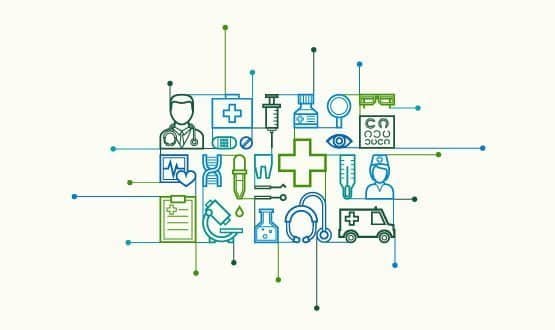Four new integrated care systems announced by NHS England
- 28 May 2018

Gloucestershire, West Yorkshire and Harrogate, Suffolk and North East Essex and North Cumbria are to join NHS England’s integrated care development programme, the organisation has announced.
The four areas, which combined cover a population of 4.5 million people, will join the ten regions already part of the initiative, which aims to improve the performance of primary, secondary and social care settings through a more joined-up approach.
NHS England chief Simon Stevens and Ian Dalton, head of NHS Improvement, said the second wave of integrated care systems (ICS) would allow NHS organisations to “supercharge” the services they provided to local communities.
In West Yorkshire & Harrogate for example, the partnership will be rolling out best practice care for people with atrial fibrillation in every GP practice, with a view of preventing over 190 strokes over the next three years and saving £2.5m. Its Cancer Alliance is additionally investing £11.5m to speed up cancer diagnosis, which includes a scheme to diagnose people displaying “vague but concerning” symptoms.
Meanwhile, a new £13m child and adolescent mental health unit for Leeds will prevent young people having to travel out of the area for treatment. The partnership also aims to recruit 150 new GPs every year, supported though a £75m investment by 2021.
Stevens said: “As the NHS turns 70, we’re keeping all that works best about the local health service, while pressing ahead with the move to more integrated care. These fundamental reforms mean more than 12 million people across England will now begin to see the benefits of joined up care between GPs, home care and care homes, hospitals and mental health services.”
NHS England said the ten existing areas, covering around seven million people already, had already seen improvements to A&E performance, cancer treatment times and waits for operations.
The 10 existing ICS include:
- South Yorkshire and Bassetlaw
- Frimley Health and Care
- Dorset
- Befordshire, Luton and Milton Keynes
- Nottinghamshire
- Lancashire and South Cumbria
- Berkshire West
- Buckinghamshire
- Greater Manchester (devolution deal)
- Surrey Heartlands (devolution deal)
The ICSs will receive additional funding to support improvements they deliver to services, as well as more freedom regarding how the health system in their area operates.
Ian Dalton, NHS Improvement CEO, said: “We have seen real progress in how NHS organisations have been collaborating with each other and with local government and local partners since integrated care systems were first introduced a year ago.
“Integrated care systems will be vital in tackling the factors that affect the long-term sustainability of patient services – many of which cross organisational boundaries.
“I am delighted we are rolling out these systems to four more areas of the country. They all demonstrate strong leadership teams, capable of acting collectively, and with an appetite for taking responsibility for their own performance for the benefit of the communities they serve.”
The news follows Tuesday’s announcement that Greater Manchester, Wessex and One London have been selected as Local Health and Care Record Exemplars (LHCRE).
The three areas, which have a total population of around 14 million, will receive £7.5m over two years and are tasked with putting in place an electronic shared local health and care record by building on existing local work.




